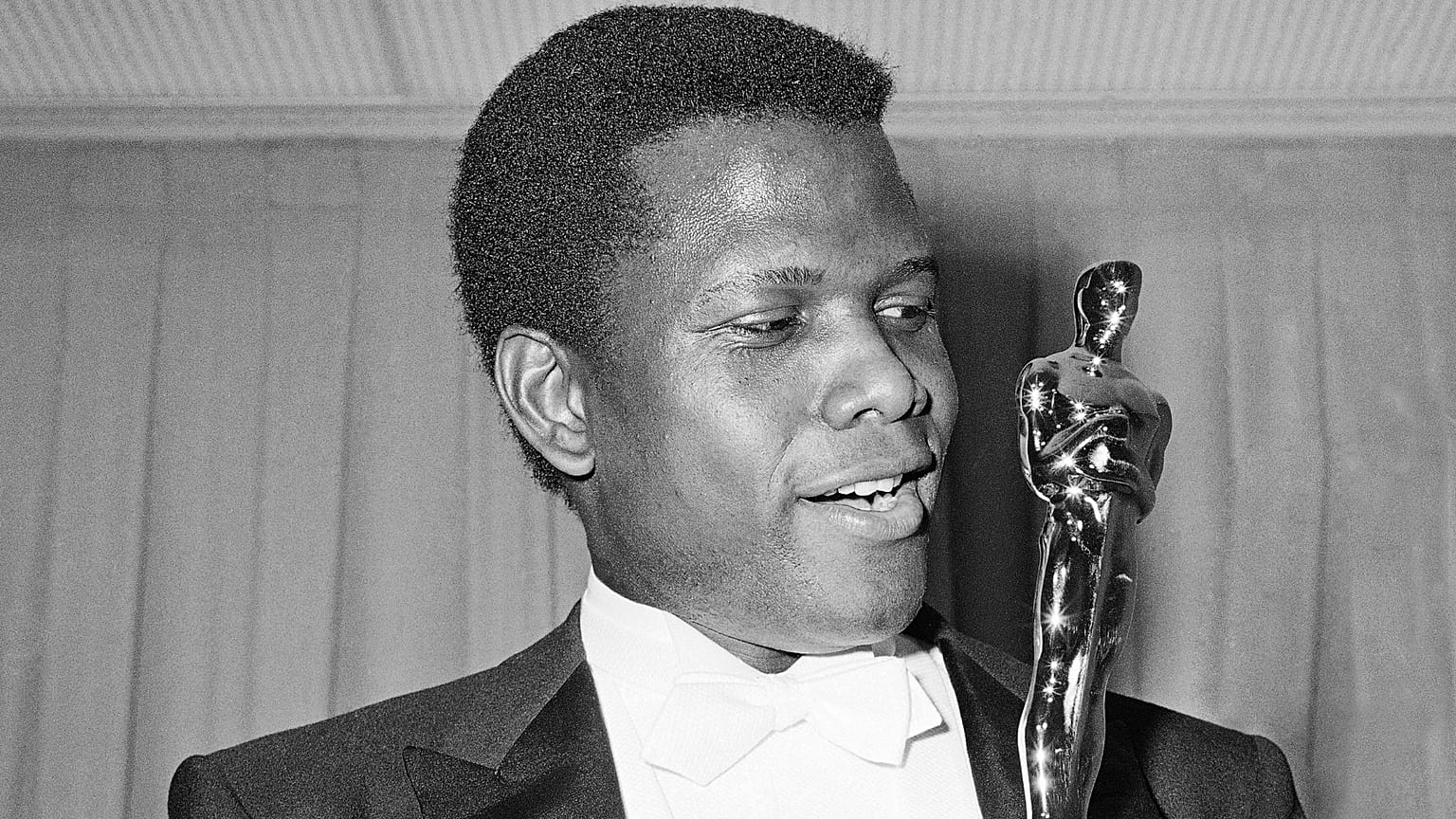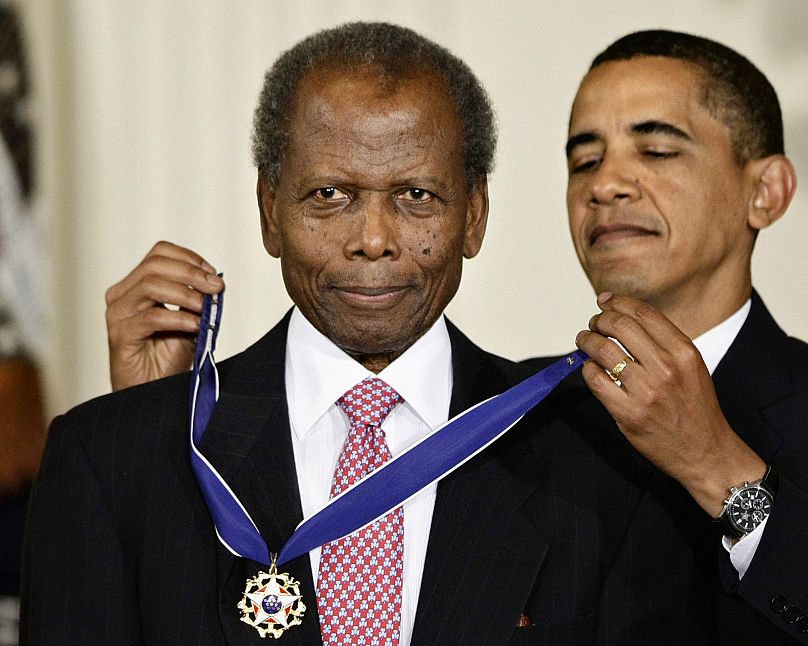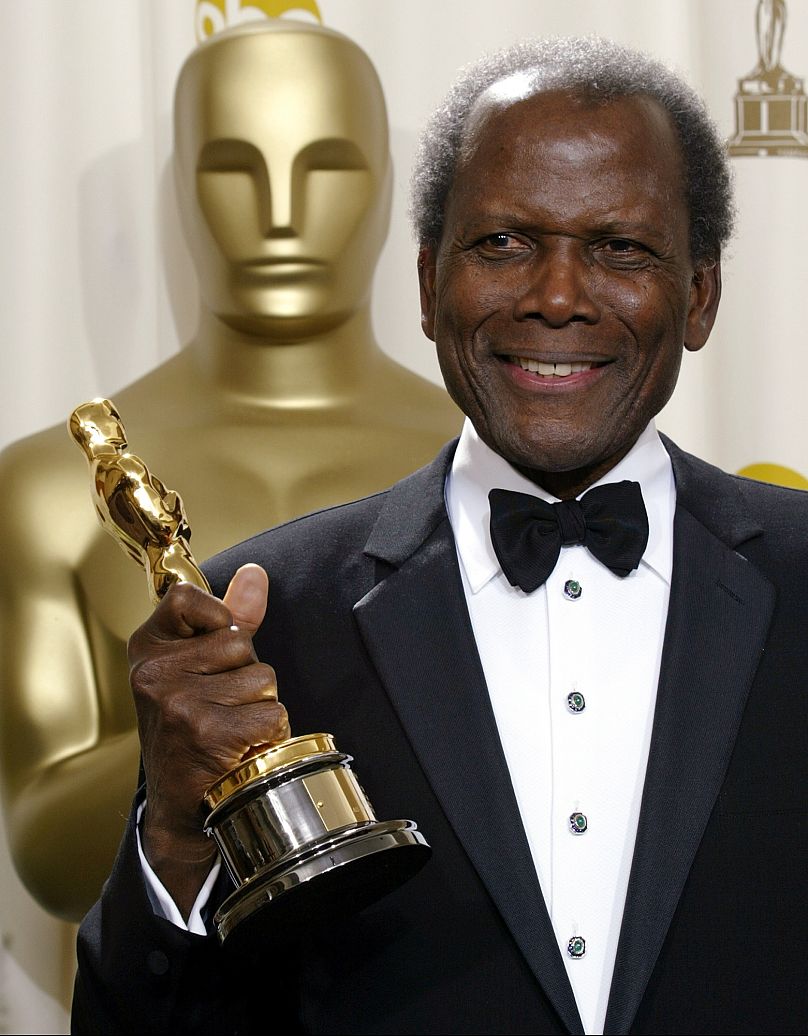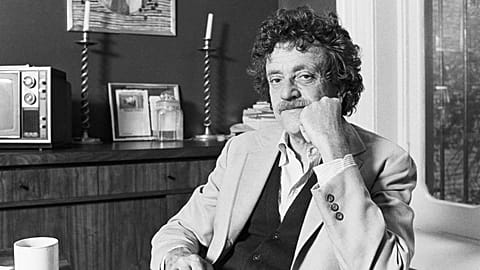Looking back at Sidney Poitier's career, the first Black winner of a Lead Actor Oscar on this day in 1964.
13 April 1964: Sidney Poitier becomes the first Black actor to win a lead actor Oscar
At the 36th Academy Awards, held in Los Angeles to celebrate the best films of 1963, the comedy Tom Jones took home the Best Film award, but it was in the acting category that history was truly made.
For his role as Homer Smith, the lead in James Poe’s film Lilies of the Field, Sidney Poitier became the first Black actor to win an Oscar in a lead role. It was a landmark victory for Poitier, who had gained a reputation as the pre-eminent example of an African American leading actor.
Poitier was born in Florida in 1927 while his parents were on a business trip. He spent his childhood in the Bahamas (then a British colony) where his parents were from, but his birth entitled him to US citizenship. He moved to the US aged 15, enlisting in the army for the Second World War.
After the war, Poitier dedicated his time to acting. He helped found the Committee for the Negro in the Arts (CNA), in order to actively improve roles for African Americans, however his role in the CNA long left him blacklisted from major productions. In the 1950s, directors noticed his obvious talent and he was cast in multiple hits, taking on greater roles.
In 1958, Poitier was nominated for his first Best Actor Oscar for his role in the film The Defiant Ones, alongside Tony Curtis. This made Poitier the first Black actor nominated in the Best Actor category.
Poitier was nominated for the Tony for Best Actor in a Play for his starring role in A Raisin in the Sun on Broadway in 1959, and received a Golden Globe nomination for Best Actor in a Motion Picture Musical or Comedy for his part in the 1959 film Porgy and Bess.
More nominations would follow, but his historic victory at the Oscars for Lilies of the Field would remain as his crowning achievement. It’s worth noting that in 1954, Dorothy Dandridge was the first Black actor to be nominated for Best Actress in a Leading Role for Carmen Jones and in 1939, Hattie McDaniel won Best Supporting Actress for her role in Gone with the Wind.
Still, Poitier’s win was significant at a time when African American actors struggled to be taken seriously by the Hollywood system. Although more nominations would follow for other Black actors, it wasn’t until 2002 that another Black actor would win in the Lead Actor category with Denzel Washington’s win for Training Day.
That same year, Poitier received an Honorary Academy Award for his contribution to cinema, awarded by Washington. When presenting the award, Washington said, “Before Sidney, African American actors had to take supporting roles in major studio films that were easy to cut out in certain parts of the country. But you couldn't cut Sidney Poitier out of a Sidney Poitier picture.”
Over his career, Poitier also won two BAFTAs, three Golden Globe Awards, and a Grammy. He also served as the Bahamas’ ambassador to Japan from 1997 to 2007, as well as the country’s UNESCO ambassador from 2002 to 2007.
Poitier died on 6 January 2022 at the age of 94.




















